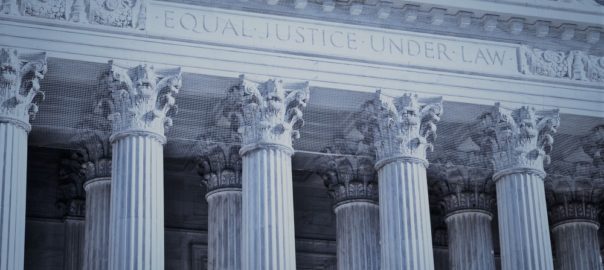United States v. Dove
No. 14-1150-cr
Second Circuit Court of Appeals
Decided on March 6, 2018
Federal Appeals Attorney in the Second Circuit Court of Appeals
Issue: Whether (1) an indictment is constructively amended where the majority of names of co-conspirators are removed from jury instruction and where the government presents evidence of minimal involvement in the conspiracy on the part of the defendant; (2) whether there is prejudicial variance from an indictment when the evidence at trial demonstrates multiple conspiracies although the indictment charged one large conspiracy; (3) whether the evidence was sufficient to convict the defendant of conspiracy; and (4) whether the district court erred in sentencing the defendant as a career offender based on two New York first and second-degree robbery convictions.
Held: The Second Circuit held that (1) neither the redaction of co-conspirators’ names in jury instruction nor evidence demonstrating the defendant’s minimal involvement constructively amended the indictment; (2) no prejudicial variance from the indictment occurred, even though the government presented evidence of multiple conspiracies; (3) evidence was sufficient to convict the defendant of conspiracy even though evidence only showed the defendant interacted with one co-conspirator; and (4) the defendant was properly sentenced as a career offender.
Facts: Dove was convicted of conspiracy to distribute and possess with intent to distribute heroin and cocaine in violation of 21 U.S.C. § 841(b)(1)(C) and 846. He was also charged with intent to distribute cocaine, in violation of 21 U.S.C § 841(a)(1) but was acquitted of that count.
The government’s primary evidence was testimony of undercover agents and video recordings of Dove participating in a drug transaction. The evidence presented at trial only included interactions between Dove and co-conspirator Ingram, although the indictment charged a six-member conspiracy. Out of the 30 transactions that took place throughout the operation, Dove was only involved in one. At trial, the district court gave jury instructions, in which the names of four of the alleged co-conspirators were redacted, leaving only the names of Dove and Ingram. Dove moved for acquittal and, alternatively, moved to vacate the judgment, claiming that the evidence was insufficient to convict him of conspiracy. The court denied both motions.
At sentencing, the court found that Dove qualified as a career offender under U.S.S.G. § 4B1.1, which resulted in a sentence of 72 months and five years of supervised release. Dove appealed both his conviction and sentence.
Analysis: Dove argued on appeal that 1) the indictment was constructively amended, 2) the government’s evidence constituted a prejudicial variance from the terms of the indictment, 3) the evidence was insufficient to support Dove’s conviction, and 4) the district court erred in sentencing him as a career offender.
Constructive Amendment of the Indictment
The conspiracy involved six individuals. However, the district court’s jury instructions removed the names of four co-conspirators and the government’s evidence only linked Dove to Ingram and no other co-conspirators. Dove claimed this constructively amended the indictment, but the Second Circuit rejected the argument, holding that neither the jury instructions nor the government’s evidence altered an essential element of the charges in the indictment.
When the charge upon which the defendant is tried differs significantly from the charge for which the grand jury voted, the indictment has been constructively amended. A constructive amendment occurs when an additional element is added or an element essential to the crime charged is altered. United States v. Agrawal, 726 F.3d 235, 259 (2d Cir. 2013).
The Second Circuit first considered whether the names of four co-conspirators, which were removed from the district court’s jury instructions, could have been essential to the charges set forth in the indictment. Pointing to United States v. Harris, 8 F.3d 943, 946 (2d Cir. 1993), in which this Court held that “an individual need not know the identities of all coconspirators in order to be found guilty of being a member of a conspiracy,” the Second Circuit determined that the inclusion of the other co-conspirators’ names was not essential and, thus, did not constructively amend the indictment. In addition, the Court concluded that the names did not constitute a necessary element by setting the minimum size of the conspiracy because the indictment specified that Dove and Ingram conspired “with others.”
The Second Circuit was also unpersuaded by Dove’s argument that the indictment was constructively amended by the government’s evidence at trial. The evidence demonstrated that: Dove participated in one transaction; the transaction was the only one out of the 30 that involved cocaine unlike the others, which involved heroin and pills; there was no evidence linking Dove to other members of the conspiracy besides Ingram; and there was no evidence that investigators were aware of Dove prior to the last day of the conspiracy.
While the Second Circuit conceded that Dove played a minor role in the conspiracy, the Court declined to agree that the evidence resulted in a constructive amendment from the conduct considered by the grand jury. The evidence at trial included Dove’s agreement to sell cocaine and that Ingram had informed the agent that Dove had sources for heroin (in Dove’s presence). The Court determined that this evidence was consistent with the terms of the indictment voted on by the grand jury.
Prejudicial Variance from the Indictment
Dove also argued that the evidence presented at trial, demonstrating multiple conspiracies involving Ingram, resulted in prejudicial variance from the indictment because the indictment alleged a single larger conspiracy. A variance occurs when the charging terms of the indictment are left unaltered, but the evidence at trial proves facts materially different from those alleged in the indictment. Reversal is only warranted for a variance if the defendant shows both: (1) the existence of a variance, and (2) that “substantial prejudice” occurred at trial as a result.
The government did not contest that there was a variance in Dove’s trial. However, the question that remained was whether the variance was prejudicial. Dove argued that he was not given proper notice of the charges against him pursuant to the Grand Jury Clause. However, the Second Circuit pointed out that Dove failed to demonstrate that he met the prejudice factors outlined in United States v. McDermott, 245 F.3d at 139 (2d Cir. 2001). In any event, the Court found that Dove had sufficient notice from the indictment that the government would attempt to prove multiple conspiracies.
Sufficiency of the Evidence
Although the evidence adduced at trial only showed that Dove was involved in “a minimum agreement between Dove and Ingram to engage in transactions,” the Second Circuit determined the evidence was sufficient to convict Dove of conspiracy.
Dove asserted that the evidence was insufficient due to the “buyer-seller” exception, which provides that “the mere purchase and sale of drugs does not, without more, amount to a conspiracy to distribute narcotics.” However, the Court determined that this exception was inapplicable in Dove’s case because the evidence demonstrated that Dove and Ingram: (1) enjoyed mutual trust and extensive cooperation; (2) had a history of standardized dealings in wholesale quantities of heroin; and (3) were planning future sales of wholesale quantities of heroin plainly not intended for personal use.
Career Offender Designation
Finally, the Second Circuit held that Dove was properly sentenced as a career offender. Dove argued that his New York convictions for first and second-degree robbery were inappropriately categorized as crimes of violence under the Career Offender Guidelines. However, recent Second Circuit case law renders Dove’s New York robbery convictions violent within the meaning of U.S.S.G. § 4B1.1.

